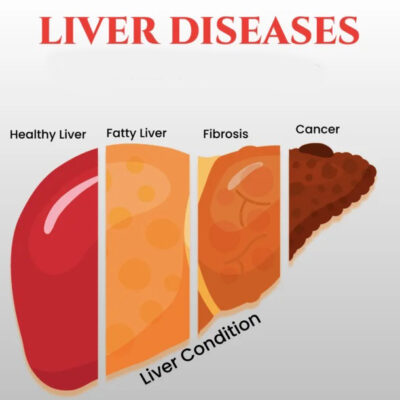In today’s beauty-conscious world, glowing and youthful skin is more than a desire—it’s become a standard many strive for. As a result, the skincare industry has expanded far beyond topical treatments. One of the most rapidly growing trends is the use of skin care supplements, also known as “nutricosmetics.” These are vitamins, minerals, and other nutrients taken orally, promising benefits like clearer skin, reduced wrinkles, improved hydration, and even protection against sun damage.
But what exactly are skin care supplements, and do they really deliver on their promises? Let’s explore the science, benefits, common ingredients, and what you need to consider before adding them to your skincare routine.
What Are Skin Care Supplements?
Skin care supplements are oral formulations—pills, capsules, powders, or drinks—designed to improve skin health from within. The concept behind them is simple: our skin reflects our internal health. Therefore, providing the body with the right nutrients may enhance skin appearance, texture, and resilience.
These supplements often contain a mix of vitamins, minerals, antioxidants, amino acids, collagen, and plant extracts, each playing a unique role in skin health.
Popular Ingredients in Skin Care Supplements
- Collagen
Collagen is the most abundant protein in the skin, giving it structure and elasticity. As we age, collagen production declines, leading to wrinkles and sagging. Supplements containing hydrolyzed collagen peptides are believed to improve skin elasticity and hydration. Some studies support this, showing modest improvements in skin moisture and appearance with daily collagen intake over 8–12 weeks.
- Vitamin C
This antioxidant is crucial for collagen synthesis and helps protect the skin from oxidative stress caused by UV exposure and pollution. It also helps reduce pigmentation and brightens the skin.
- Vitamin E
Often combined with Vitamin C, Vitamin E helps protect skin cells from damage. It’s a fat-soluble antioxidant that supports skin healing and hydration.
- Zinc
Zinc plays a key role in regulating oil production, reducing inflammation, and aiding skin repair. It is particularly beneficial for those with acne-prone skin.
- Biotin (Vitamin B7)
Biotin is a popular ingredient in hair, skin, and nail supplements. Although deficiency is rare, biotin is involved in fatty acid metabolism, which may impact skin health.
- Omega-3 Fatty Acids
Found in fish oil or algae oil, omega-3s have anti-inflammatory properties and help maintain skin’s moisture barrier. They’re especially helpful for dry, irritated, or inflamed skin.
- Hyaluronic Acid
Well-known for its hydrating power in topical skincare, oral hyaluronic acid has also shown promise in boosting skin moisture and elasticity.
- Coenzyme Q10 (CoQ10)
An antioxidant naturally produced by the body that decreases with age. It may help reduce fine lines and improve skin texture when taken as a supplement.
Benefits of Skin Care Supplements
- Anti-Aging Effects
Many supplements aim to reduce the appearance of fine lines and wrinkles by supporting collagen production and skin elasticity. - Improved Hydration
Ingredients like hyaluronic acid and omega-3 fatty acids help the skin retain moisture, reducing dryness and flakiness. - Clearer Complexion
Some nutrients, like zinc and Vitamin A, have been shown to reduce acne and improve overall skin clarity. - Protection from Environmental Damage
Antioxidants such as Vitamin C, E, and polyphenols protect against free radical damage caused by UV rays and pollution. - Enhanced Healing and Skin Renewal
Nutrients like Vitamin A, C, and zinc support wound healing and may improve conditions such as eczema or psoriasis.
Do They Really Work?
The effectiveness of skin care supplements depends on several factors:
- Quality and Dosage: Not all supplements are created equal. The form of the ingredient (e.g., hydrolyzed collagen vs. gelatin), the dosage, and the delivery system (capsule vs. liquid) all influence absorption and effectiveness.
- Consistency: Like most supplements, results are gradual and require consistent use over several weeks to months.
- Individual Variability: Genetics, diet, lifestyle, and existing health conditions can affect how well a supplement works for an individual.
- Scientific Evidence: While some ingredients like collagen peptides, omega-3s, and vitamins C and E have promising studies behind them, others lack robust clinical evidence.
Are There Risks?
Generally, skin care supplements are safe when used as directed. However, risks include:
- Over-supplementation: High doses of certain vitamins (like Vitamin A) can be toxic or cause side effects like liver damage or skin issues.
- Drug Interactions: Some supplements can interact with medications.
- Allergies or Sensitivities: Always check ingredient lists, especially if the supplement includes marine collagen or soy.
- Lack of Regulation: Supplements are not as tightly regulated as medications, which means quality and purity can vary. Choosing products from reputable brands is crucial.
Should You Take Skin Care Supplements?
Skin care supplements can be a helpful addition to a healthy skincare routine, but they are not a substitute for a balanced diet, sun protection, or a consistent topical regimen.
Here are a few tips before you start:
- Consult a dermatologist or healthcare provider, especially if you have skin conditions or are taking medication.
- Choose high-quality, clinically-tested brands that disclose full ingredient lists and third-party testing.
- Track your progress, giving supplements at least 8–12 weeks to show results.
Conclusion
Skin care supplements are more than a trend—they’re part of a growing movement that recognizes the link between nutrition and skin health. While they’re not miracle pills, many contain ingredients that can support skin hydration, reduce inflammation, and slow signs of aging when used consistently and responsibly.
Ultimately, radiant skin starts from within. Supplements may enhance your efforts, but a balanced diet, adequate hydration, quality sleep, sun protection, and good skincare habits are still the foundation of healthy, glowing skin.


